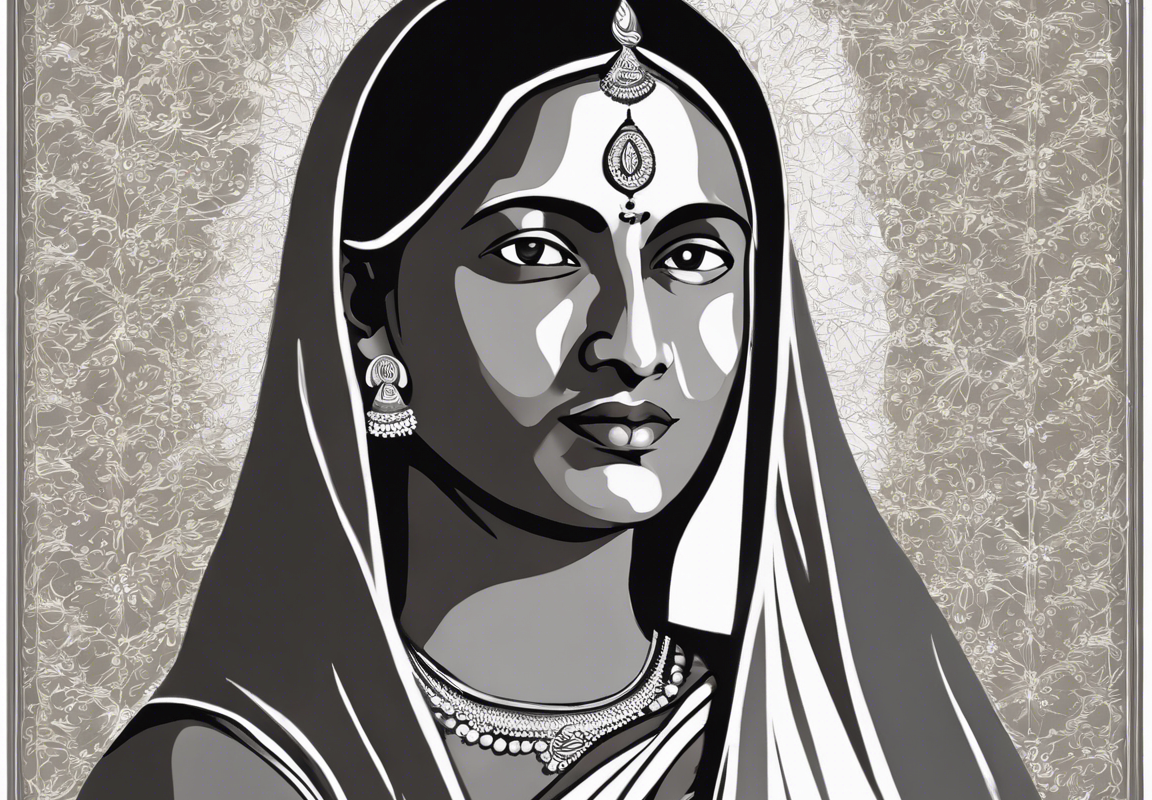Introduction
Savitribai Phule, born on January 3, 1831, in Maharashtra, India, is often referred to as the first female teacher of India and a pioneer of women’s rights and education. She and her husband, Jyotirao Phule, worked relentlessly towards empowering women and fighting against the caste system and social injustices prevalent in 19th-century India. Savitribai’s legacy continues to inspire women worldwide to challenge societal norms and strive for equality and education for all. This article delves into her remarkable life, contributions, and enduring impact on gender equality and social reform.
Early Life and Education
Savitribai Phule was born into a family belonging to the so-called “untouchable” Mahar caste, facing discrimination and oppression in society. Despite the lack of formal education available to girls at that time, Savitribai’s eagerness to learn led her to pursue education under her husband’s guidance. Jyotirao Phule, a social reformer himself, recognized Savitribai’s potential and taught her to read and write, laying the foundation for her transformative journey ahead.
Pioneering Women’s Education
In 1848, Savitribai and Jyotirao established the first girls’ school in Pune, India, breaking barriers and challenging existing norms. Savitribai served as the headmistress of the school, imparting knowledge to girls who were otherwise deprived of educational opportunities. She faced immense backlash and threats from conservative elements opposed to women’s education but remained resolute in her mission to empower women through learning.
Activism and Social Reform
Savitribai Phule was a vocal advocate for gender equality, social justice, and the rights of marginalized communities. She actively campaigned against practices such as sati (widow burning), child marriage, and caste discrimination, which were deeply entrenched in Indian society. Savitribai’s fearless stance and relentless efforts paved the way for progressive reforms and challenged the status quo.
Legacy and Impact
Savitribai Phule’s legacy transcends time and borders, inspiring generations of women to stand up against oppression and fight for their rights. Her unwavering dedication to education as a tool for empowerment continues to resonate in the ongoing struggle for gender equality worldwide. Savitribai’s pioneering work laid the foundation for the feminist movement in India and set a precedent for women’s involvement in social reform and nation-building.
Challenges Faced
Throughout her life, Savitribai Phule faced numerous challenges and obstacles due to her gender, caste, and social status. From enduring societal scorn and ostracism to navigating threats and physical violence, she remained steadfast in her commitment to effecting positive change. Savitribai’s resilience in the face of adversity serves as a testament to her indomitable spirit and unwavering resolve.
Key Achievements
Savitribai Phule’s enduring legacy is marked by her significant contributions to women’s education, social reform, and empowerment. Some of her key achievements include:
- Establishment of the first girls’ school in India
- Promotion of women’s rights and gender equality
- Advocacy against oppressive social practices
- Empowerment of marginalized communities through education
- Pioneering role in the advancement of women’s rights and social reform
Frequently Asked Questions (FAQs)
- What were the main challenges faced by Savitribai Phule in her efforts to promote women’s education?
-
Savitribai Phule faced societal backlash, threats, and ostracism from conservative elements opposed to women’s education. She also encountered resistance from traditionalists who viewed her actions as subversive to the existing social order.
-
How did Savitribai Phule contribute to social reform in 19th-century India?
-
Savitribai Phule actively campaigned against oppressive practices like sati, child marriage, and caste discrimination. Through her advocacy and activism, she sought to dismantle entrenched social hierarchies and promote equality for all individuals.
-
What was the significance of Savitribai Phule’s role in establishing the first girls’ school in India?
-
By establishing the first girls’ school in Pune, Savitribai Phule opened up educational opportunities for girls who were otherwise marginalized and deprived of learning. This groundbreaking initiative laid the foundation for women’s education in India and beyond.
-
How did Savitribai Phule’s advocacy for women’s rights inspire future generations of feminists?
-
Savitribai Phule’s fearless advocacy for women’s rights and gender equality served as a beacon of hope for future generations of feminists. Her unwavering dedication to challenging societal norms and empowering women continues to inspire feminist movements worldwide.
-
What is the enduring legacy of Savitribai Phule in the fight for gender equality and social justice?
- Savitribai Phule’s enduring legacy lies in her pioneering efforts to promote gender equality, education, and social reform. Her legacy continues to inspire individuals and movements advocating for women’s rights, social justice, and equality for all members of society.
Conclusion
Savitribai Phule’s remarkable journey from a marginalized woman in 19th-century India to a trailblazing advocate for women’s rights and education remains a beacon of hope and inspiration. Her legacy serves as a testament to the transformative power of education, empowerment, and social activism in challenging oppressive structures and fostering a more equitable society. Savitribai Phule’s indelible impact continues to resonate with women and social reformers globally, underscoring the enduring relevance of her pioneering work in the ongoing fight for gender equality and social justice.






